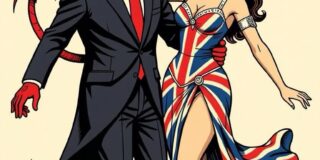These feelings which we Cubans have already acquired will have to be shared by someday. Today it hurts us if a Cuban is hungry, if a Cuban has no doctor, if a Cuban child suffers or is uneducated, or if a family has no housing. It hurts us even though it’s not our brother, our son, or our father. Why shouldn’t we feel hurt if we see an Angolan child go hungry, suffer, be killed or massacred? Today we are hurt by the crimes that are committed against our people, by crimes committed against any Cuban, but as we progress and other generations have a higher consciousness than ours, the day will come when these feelings will go beyond the narrow horizons of a country’s boundaries.
We have gone beyond individual and family egoism, and we are beyond the borders of national egoism. The day will come when these things I’m talking to you about have to be the prevailing feeling in every human family. You can’t be utopian. I know that time hasn’t come yet; there is still a great deal of egoism in the world; there is still a great deal of injustice and meanness. Part of humanity has freed itself and has started along this path, and we can feel that we are a part of this humanity.
We Cubans are now beginning to feel the problems of other peoples just as we feel our own problems. We have begun to feel them and to do something about them and to do something about them. It isn’t much but we are doing what we can. If Cuba were only a richer country! If we only had great natural resources and we could use those resources to help more than we are helping. It could be said that today, our people’s generosity goes beyond our material resources, beyond our strength.
Fidel Castro Luanda, Angola March 30, 1977.
“We have gone beyond individual and family egoism, and we are beyond the borders of national egoism. The day will come when these things I’m talking to you about have to be the prevailing feeling in every human family.” Beyond the borders of national egoism, fine words and a goal for all humanity to strive towards, but how far has the world slipped since these words were uttered to another people facing foreign aggression? All Australians have to do is look north towards our brothers and sisters in West Papua and open our hearts to their cries of pain and anguish and realise how far humanity has slipped from this ideal in three short decades.
By opening our hearts to the anguish, pain and despair that is everyday life for the indigenous West Papuans we will begin see the total travesty that was the integration of West Papua into the Indonesian economic and political structure in 1969. While West Papua has contributed to solving the economic problems of Indonesia and some multi-nationals, only a small portion of the indigenous population has benefited directly from this integration. In return for their forced integration into the wider Indonesian economy the indigenous peoples of West Papua have witnessed the plundering of their minerals, the destruction of their forests and the depletion of the fish in their waters.
Because of the almost complete isolation of West Papua from the outside world, the mining companies and the Indonesian Government have had it all their way. For the Freeport Copper mine the Indonesian Government paid the indigenous owners with tobacco and other goods; no beads it seems were involved in this transaction! No more than a few indigenous Papuan’s were offered jobs during the construction of the Freeport Mine and these at 8 to 10 cents an hour! Unlike CRA’s now defunct Panguna copper mine where 40% of the construction workforce were indigenous Bougainvilleans, Freeport employed 850 foreign and 1,200 Indonesian workers during the height of construction, arguing that the indigenous people who rightfully owned the land were nothing more than “unreliable Stone Age primitives’. Under the conditions that prevailed then and continue to prevail in West Papua now, multi-national power and racism reign supreme. The extent to which the indigenous population felt cheated by this transaction can be measured by the periodic though ineffectual attacks they made on the construction camp.
The middle and upper echelons of the West Papuan bureaucracy are staffed by non-Papuans as are of course, all senior positions in the military, the centre of effective power. Added to this is the fact that the official language and therefore the language of education is Bahasa Indonesia. Education itself is directed towards Indonesian State objectives which is the acculturation and assimilation of the West Papuan people.
Since 1963, the Free Papua Movement (OPM), though banned in that year by Indonesia, has resisted Indonesian domination of West Papua, claiming that Indonesia plans to colonize the territory and destroy the Melanesian culture of its people. As Indonesia has stepped up programs of social, political and economic integration of West Papua, resistance has increased and support for OPM has grown. A recent study conducted by Sydney University’s Centre for Peace and Conflict Studies and the Institute for Human Rights Study and Advocacy based in Jayapura, titled Genocide in West Papua? details the ongoing human rights abuses and the systematic violence, including rape, arson and torture in the Indonesian-occupied territory of West Papua. The report documents eyewitness accounts of military campaigns which have destroyed whole villages in the remote highlands region and details military involvement in acts of arson and destruction of property, rape, torture and arbitrary disappearances. (More than 100,000 Papuans deaths are estimated to have occurred as a result of the Indonesia occupation since 1963. Many would argue that this is a vastly conservative estimate.).
The report concludes that Indonesia’s security forces act with total impunity and are the main source of instability in the territory.
Others are starting to speak out against the ongoing genocide in West Papua. The former Bishop of Oxford, the Rt Hon Lord Harries of Pentregath said:
The principles at stake with West Papua are fundamental to civilised life in the modern world. The so-called Act of Free Choice consisted of 1026 people being forced at gunpoint to vote for integration with Suharto’s Indonesia. The West Papuans are a people – the same people as those of Papua New Guinea on the east of the island – who obtained their independence from Britain over 35 years ago. They have no desire to be ruled from Jakarta.
The West Papuan’s have no desire to be ruled from Jakarta, but they are; why? The answer is simple: Western greed and our complicity. We live in a morally flawed world, one full of regrets and reproaches. Some of the things we regret, or for which we are reproached, we bring about intentionally and on our own. But our lives are increasingly complicated by regrettable things brought about through our associations with other people or with the social, economic, and political institutions in which we live our lives and make our livings. Try as we might to live well, we find ourselves connected to harms and wrongs, albeit by relations that fall outside the paradigm of individual, intentional wrongdoing. One way we as individuals can make a difference in this world complicated by regrettable things, brought about through our associations with other people or with the social, economic and political institutions is to not deal with economic institutions associated with regrettable things. I suggest that the current genocide going on in West Papua is a regrettable thing. If each of us as individuals said no to products made from the theft of West Papuan resources, if we shunned the output of the Freeport mine and all associated with it, then we could make a difference, a difference that might stop 100,000 deaths becoming 1,000,000!
| Will you sign the petition calling for a Royal Commission into the Australian Federal Police? |



